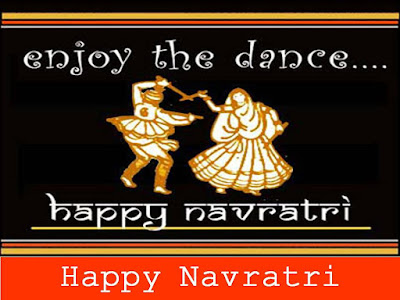Celebration of Navratri and
Navratri Significance
NAV-RATRI (nine-nights), is for the nine days when we thank the female principle of nature and the goddesses connected to them.
The nine nights are dedicated to the three main goddesses of Hinduism - Parvati, Lakshmi and Sarasvati
The first three nights are dedicated to the goddess of action and energy. Her different manifestations: Kumari, Parvati and Kali are worshipped during these days. They represent the three natures/ classes of womanhood
Lakshmi is worshipped for the next three days in her various aspects as the goddesses of peace, plenty and bliss.
Fulfillment is more important than wealth itself. As the goddess of wealth, she governs not just the bank balance, but also such basic things as family, friends, food etc.
Saraswati is the goddess of knowledge. Not just the knowledge of how to earn a living, but how to "live" as well. She is the goddess of the spiritual knowledge and the knowledge that frees us from this bind of Samsara. She is worshipped during the final three days of the Navratri.
The nine nights are there for us to revel in the knowledge of the goddesses that live within us, imbibing us with their spiritual energy and power. Used for the good, they help liberate us from the mire of this world (help us attain NIRVANA). Use these energies unwisely, and they will snare us in the maya of this world. We should meditate these aspects of the nine nights, that was the reason they originally came into being.
This festival is devoted to the Mother Goddess known with different names as Durga, Kali, Bhavani, Amba, and Chandika, has been celebrated in it's most unique and different ways in various parts of India and abroad with devotional songs, bhajans and cultural programs with the world renowned Garba or Dandiya Raas in the state of Gujarat.


Comments
Post a Comment